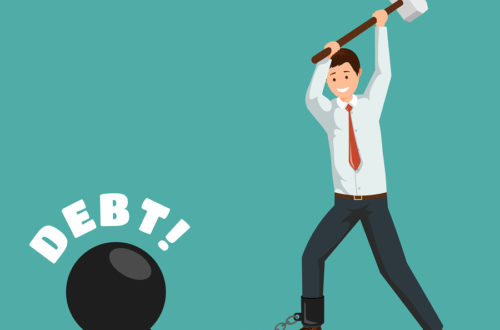New legislation has been introduced that could completely overhaul the consumer bankruptcy system. The legislation was proposed by two Congressional Democrats, Rep. Jerry Nadler (D-NY) and Sen. Elizabeth Warrant (D-MA) and is titled the Consumer Bankruptcy Reform Act of 2020 (CBRA).
The bill proposes replacing the two systems currently used for consumer bankruptcy, Chapter 7 and Chapter 13, with one new system, Chapter 10 Bankruptcy, which would allow two routes for individual bankruptcy filings under the same bankruptcy code chapter.
Under the new Chapter 10 system, the first option available to consumers would allow them to surrender their assets to pay debts and therefore be free from their debts. In the second option, the consumer would be allowed to declare bankruptcy on some debts, but to officially commit to remain current on their other payments. Under the second system, the filer would be able to create a debt-specific plan related to the individual or his or her family.
This bill is the first major proposed reform of the bankruptcy system made in 16 years. As of March 2021, Congress had not moved forward with the proposed legislation.
Chapter 10 bankruptcy would apply to any consumer carrying debt less than $7.5 million. The proposers of the bill intended to create this new system to streamline and modernize the current bankruptcy process.
Currently, filers who want to file for Chapter 7 bankruptcy need to qualify through the means test, which considers their income, expenses, and family sizes when determining whether they are eligible to proceed under Chapter 7. If they do not qualify through the means test, they are required to proceed under a Chapter 13 case, which takes longer to complete and can cost more.
Chapter 10 would eliminate the “means test” and create the opportunity to pay attorney fees over time. The new ‘one-track’ proposal focuses on eliminating problematic debt. In the present Chapter 7 system, lawyers must be paid up front and in full; the new law would allow consumers to pay legal fees over time, which would ease financial burdens.
Under the current bankruptcy system, the consumer filing for bankruptcy is required to address all of his or her debts. However, under the new bill, the consumer can “decouple” his or her financial obligations, meaning the consumer deals with some debts in the case while continuing to pay on others. For certain debts, the consumer can keep the assets associated with the debt, so long as he or she can pay the creditor cash equal to the value of the asset. For example, if the consumer needs his or her car during the case, he or she can keep it so long as a payment is made to the auto lender equal to the value of the car.
This new legislation would help ensure families are able to keep their cars and homes while going through bankruptcy. Current law requires renters to pay all back rent to their apartment or rental. CBRA allows back rent to be treated like any other unsecured debt.
The new system also attempts to alleviate an issue that has been a continual problem in consumer bankruptcy: student loan debt. The bill allows the filer to discharge student loan debt under Chapter 10 bankruptcy.
In addition, Chapter 10 attempts to fix racial disparities that lawmakers say have resulted from how bankruptcy cases are currently handled. Studies have shown that African Americans have disproportionately been directed towards filing Chapter 13 bankruptcy, even though a Chapter 7 bankruptcy case would have been a better option for them. In fact, African American households are twice as likely to pursue a Chapter 13 cases as compared to other races.
CBRA is far off from becoming law. While it is likely to pass the Democrat controlled House, it is likely to run into roadblocks in the Senate, which is currently split 50-50. The bill does have the backing of President Biden.
Please click here to read more.
If you have questions on this topic or are in financial crisis and considering filing for bankruptcy, contact an experienced Miami bankruptcy attorney who can advise you of all of your options. As an experienced CPA as well as a proven bankruptcy lawyer, Timothy Kingcade knows how to help clients take full advantage of the bankruptcy laws to protect their assets and get successful results. Since 1996 Kingcade Garcia McMaken has been helping people from all walks of life build a better tomorrow. Our attorneys’ help thousands of people every year take advantage of their rights under bankruptcy protection to restart, rebuild and recover. The day you hire our firm, we will contact your creditors to stop the harassment. You can also find useful consumer information on the Kingcade Garcia McMaken website at www.miamibankruptcy.com.


